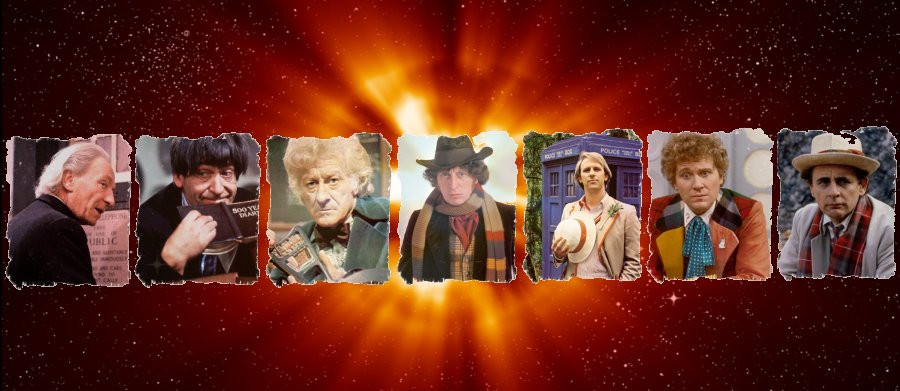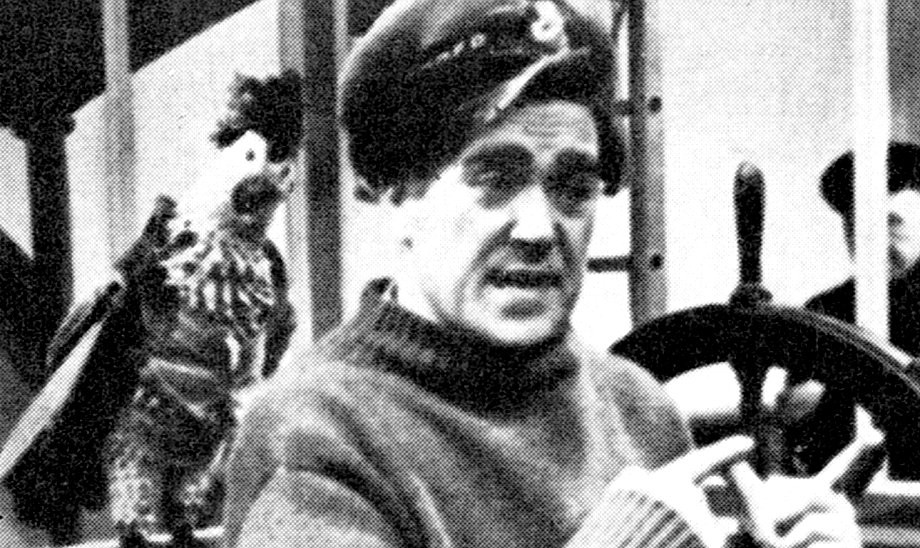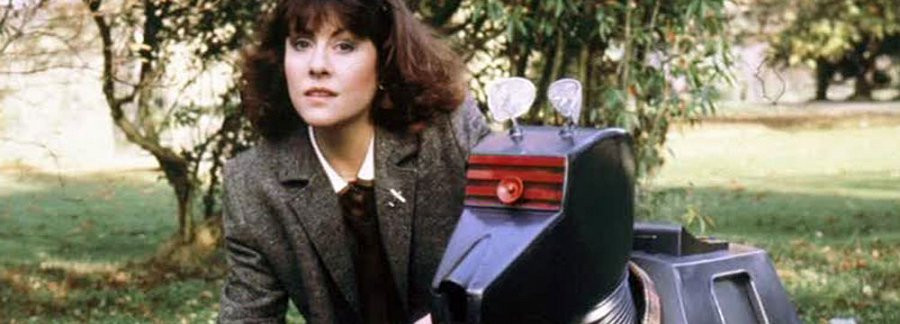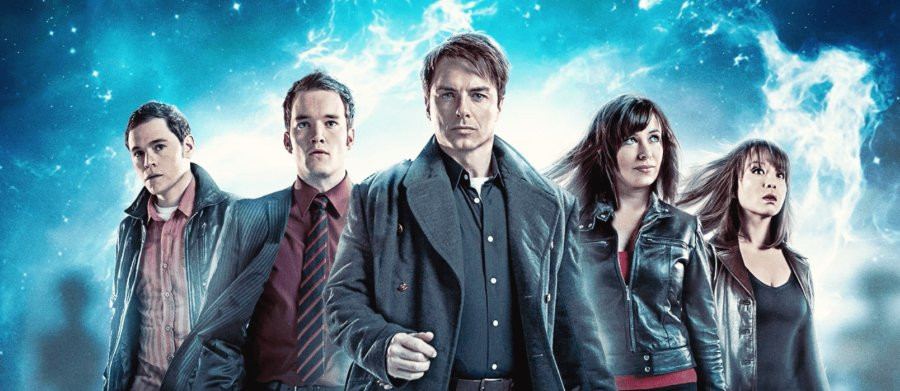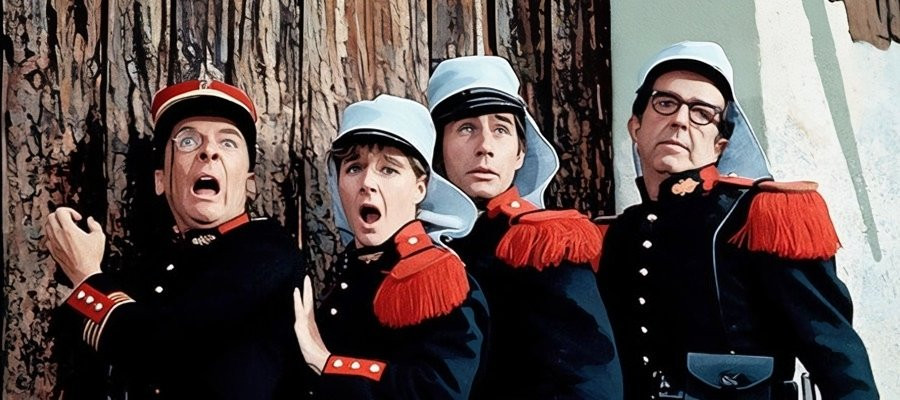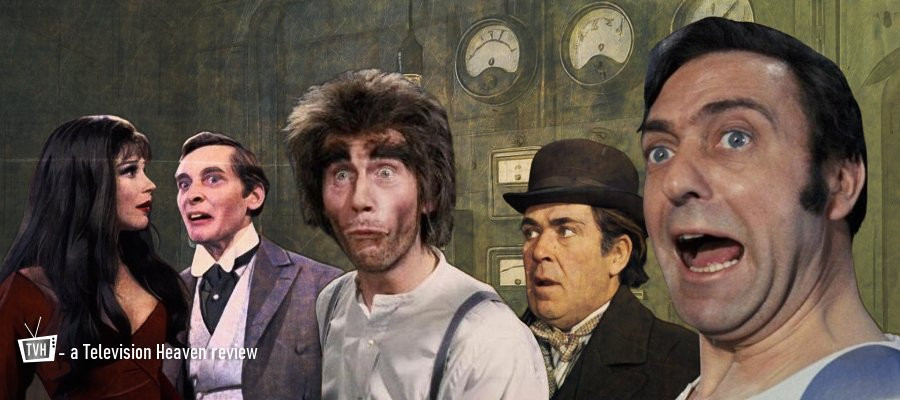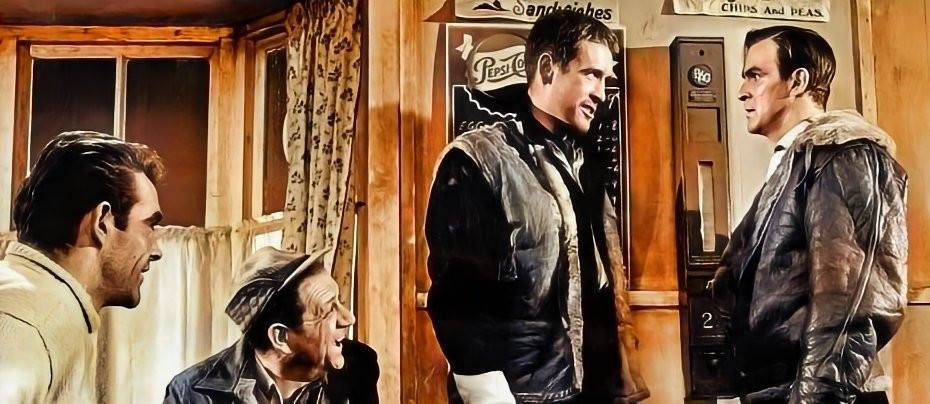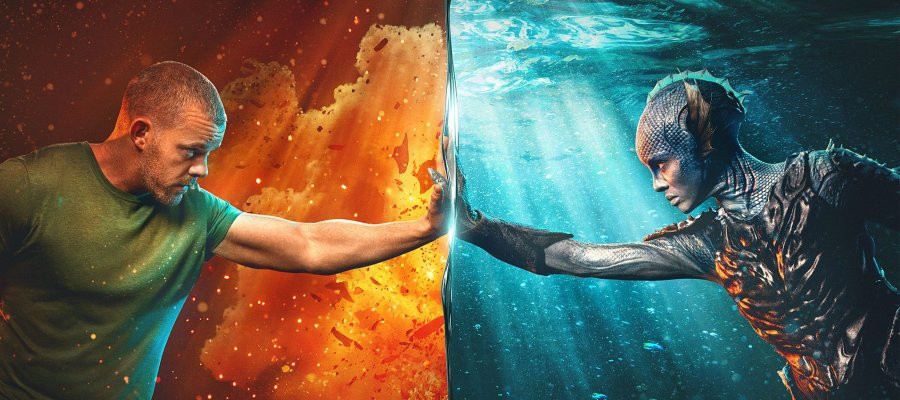The Time Meddler
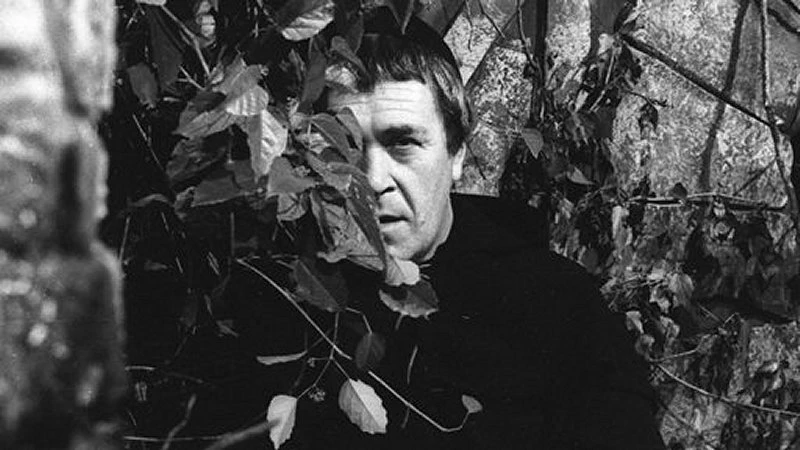
The Time Meddler is a seminal story in the Doctor Who canon. Watching it today, it's hard to appreciate just how big a departure from the norm this serial was upon broadcast in 1965. Over the years, viewers of the series have become accustomed to adventures which see the Doctor arrive in a recognisable era of history, only to be confronted by an alien or time-travelling element that throws the natural order of history out of joint.
It wasn't always this way. Prior to The Time Meddler, the series' historical and science fiction elements had been kept largely separate. Apart from the obvious exceptions of the TARDIS and its crew, alien and anachronistic elements had appeared just once in a historical setting, and that had been in the previous serial, The Chase. Even this had been a relatively minor event, with the Daleks following the Doctor into several points in time for brief set pieces before a futuristic finale. The Time Meddler took this approach and crafted a whole story around it. For the first time ever, the intrusion of the modern and alien into the past was the very crux of the story. Previous Doctor Who stories set in the Earth's past had viewed history as sacrosanct and unchangeable, if they addressed the concept at all. Only The Space Museum, earlier that same year, had proposed that time could be malleable and dynamic. For the first time, The Time Meddler showed us the perils of messing with the natural course of history, and the dangers inherent in time travel.
The serial begins much like any other, with a character scene set within the TARDIS as it materialises in a new, unknown location. Even this was breaking new ground in its way, however. At the close of the previous story, schoolteachers Ian and Barbara had parted company with the Doctor and returned to their own time. This is another huge shift in the programme's format that is easy to miss watching now. Up until this point, Ian and Barbara had been, essentially, the heroes of the series. With their departure, the Doctor is finally given centre stage. He is now the only character who was there at the series' beginnings. Accompanied by Vicki, herself a substitute for Susan, the Doctor completes his transformation from mysterious, untrustworthy antihero to the jolly, adventurous hero that is now more recognisable. He takes on some of the teacher role of Ian and Barbara, granting his wards educational titbits on their travels. However, this leaves a vacancy for a young, masculine action character, a role that Ian had fulfilled previously.
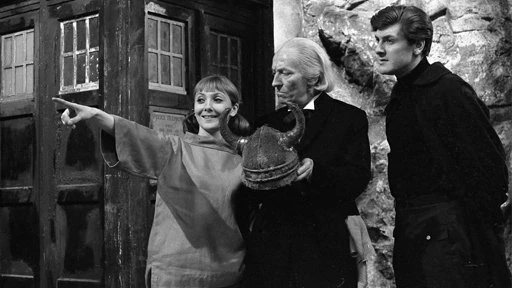
Into the series steps Steven Taylor, a space pilot who had stowed away on the TARDIS at the close of the previous serial. The Doctor and Vicki chat about their friends' departure, then, upon discovering Steven, explain the nature of the TARDIS and their travels through time and space, helpfully re-establishing the fundamentals of the series for any new viewers. A regular space traveller himself, Steven has no difficulty accepting that the TARDIS is an advanced form of spacecraft but refuses to believe that it is capable of time travel.
While much of the focus of this serial is on the Doctor, Vicki and Steven get a good deal of the screen time. Indeed, they have to carry most of the second episode, since the Doctor is entirely absent due to Hartnell taking one of his frequent holidays. His absence is less obvious than it might be, due to the episode revolving primarily around his companions' search and rescue mission for him. The Doctor remains the focus of this part of the story, in spite of not appearing. Thankfully, Vicki and Steven are up to the task of carrying the episode. Maureen O'Brien and Peter Purves have an easy chemistry, quickly building a believable friendship between the two futuristic young adults. It's a pity that they haven't more to do in the serial, spending much of their time wandering to and fro, escaping from and sneaking into the monastery. They make a good team, but sadly are given very little to do other than demonstrate their rapport.
It has to be said that the serial is, fundamentally, a fairly straight forward one with relatively little interest. The historical setting is less developed than it might have been, with just a handful of locations populated by some characters who feel very sketched in. The Vikings are particularly one- dimensional, although the native Saxons, on the whole, are not much better. It is only the village headman, Wulnoth, and his wife Edith, who get any appreciable screen time and characterisation. While Michael Miller does his best to make Wulnoth a rounded character, he is given very little material to use. Alethea Charlton, previously seen as cave-woman Hur in Doctor Who's opening serial, is very good as Edith. She has a great rapport with the Doctor, and acts as our only real link to the 11th century world we're visiting. There is a powerful scene in the second episode, in which Wulnoth returns home to find Edith traumatised following a Viking attack. It is heavily implied that she has been raped, although nothing is ever said aloud, and any younger viewers would surely presume that she has 'merely' been physically assaulted. Nonetheless, this is a shocking scene for Doctor Who; the serial is admirably brave enough to confront the horrors of the period. Wulnoth's grief as he holds his wife makes it one of the most affecting scenes in the programme. Worryingly, once the Doctor is back, he seems to not even notice that the woman who is waiting on him hand and foot has clearly been very badly hurt.
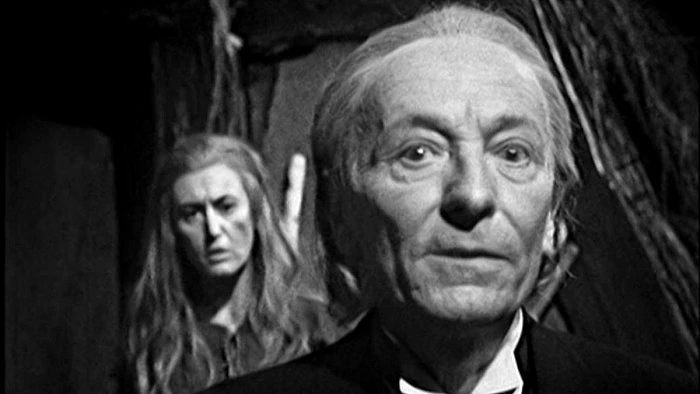
The occasional flashes of brutal historical truth are all the more noticeable given the whimsical, even comedic nature of the serial as a whole. Landing on the beach, the Doctor establishes that the TARDIS has brought them to the 10th or 11th century due to the presence of a horned Viking helmet. Steven suggests that this is merely part of a child's costume, which is actually rather more plausible, seeing as the Viking's never really wore such things. As the story goes on, Steven's cynicism seems to be borne out, when he finds a 20th century wristwatch lying in the woods. The Doctor wanders up towards the local monastery, his interest peaked when the sound of monastic chanting skips a track. The viewers are one step ahead; we've already seen the mysterious Monk, watching the materialisation of the TARDIS with no apparent surprise. The Doctor discovers a gramophone in the monastery, playing chanting to hide the fact that the building has been abandoned.
Peter Butterworth plays the Meddling Monk with great comedic flair that would soon see him find fame in the Carry On... series of comedy films. He waddles around, attending to errands, chuckling to himself, engaging a little slapstick with his electric toaster. It's in his interplay with the Doctor that sees them both at their best, as they engage in banter and one-upmanship. The Doctor is morally outraged at the Monk's attitude, tweaking history to suit his whims. "It's more fun my way," he says, and fails to see just why he shouldn't be messing with time. Fabulously, he has a flipchart detailing his plan of action, ticked off as he goes along, and ending with "Meet King Harold." The Monk is, unlike later characters with similar modus operandi, not presented as evil. He is villainous, and indeed dangerous, yet the Doctor treats him more like an errant schoolboy up to mischief than as a foe who must be stopped at all costs. A meddler he may be, but he takes an injured man into his care, and seems genuinely concerned for the welfare of the people whose lives he is affecting. It's hard to square with his plan to annihilate the Viking fleet with an atomic cannon - overkill, surely? - yet he seems to genuinely want to help the English people. His plan to alter the outcome of the Battle of Hastings is certainly ambitious. It's hard to think of a single defining event in the last thousand years of western history that would have more far-reaching impact. On the other hand, it's incredibly Eurocentric, even Anglocentric, to ignore the advances and events in the rest of the world and focus on pushing this one culture forward.
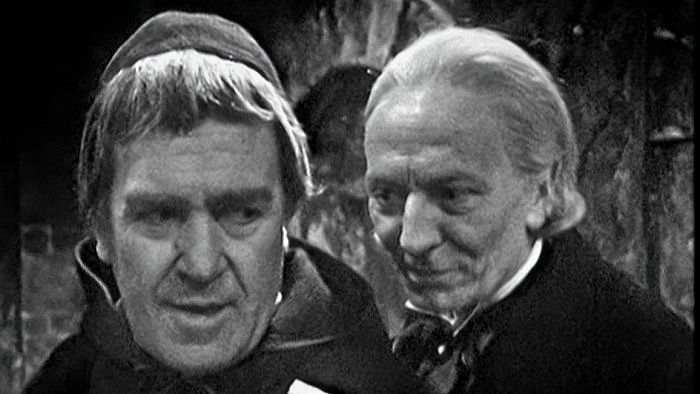
The Monk brings out a side to the Doctor that's even more interesting than the character is himself. The Doctor is in a particularly humorous mode in this story, chuckling and teasing his way through the proceedings. The Doctor's character had become more accessible and light-hearted as the series had developed. In fact, it's tempting to see the Monk as a test for another kind of time traveller. With his schoolboyish charm, mischievous interference and "monkery," to use the Doctor's word, the Monk is very much like Patrick Troughton's version of the Doctor. Yet look at the characters from another angle. The Monk has already interfered with history, and is, if we can believe him, responsible for both Leonardo da Vinci's work on powered flight and the construction of Stonehenge. Both of these are established events in history. Is not the Monk's meddling, then, part of what is supposed to happen? Why is it right for the Doctor to disrupt his quest now? The Doctor, on the other hand, once learns the date and location from Edith, chuckles to himself about the Battle of Stamford Bridge and ensuing carnage of Hastings. All the people who he's been so chummy with in the village will no doubt suffer under the Norman regime whose victory he is ensuring. At no point in the story does he do anything to help the villagers themselves, unlike the Monk. You have to wonder just whose side we should be on. Is the Doctor really the good guy, just because his view of time is somehow more 'right' than that of the Monk?
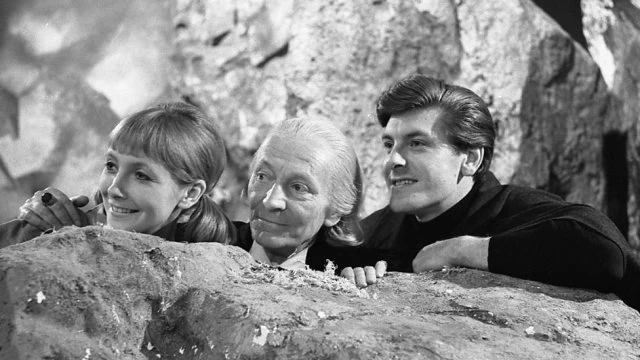
Regardless of who is more morally sound, it is the Monk who has the greatest impact on the programme in this story. At the close of the third episode, Vicki and Steven stumble across a secret entrance into a stone sarcophagus while searching for the Doctor. They enter to find themselves in the TARDIS set. "It's a TARDIS," gasps Vicki. "The Monk's got a TARDIS!" At the time, it must have been one of the most shocking cliff-hangers in the history of the series. Looked at now, it is a moment that changes everything. Never before had we any insinuation that there were any others of the Doctor's people travelling through time. There was the Doctor, and his granddaughter, seemingly unique. Now, the Doctor is revealed to be merely one of a race of people, and if the Monk can travel the universe and meet him, then so to can others. We're still a long way from such terms as "Time Lord" and "Gallifreyan," but nonetheless, from here on out the nature of the programme and its protagonist has changed.
Sadly, once the Monk has been outed as one of the Doctor's fellows, and the three travellers have been reunited, it's merely a case of winding the story up. There are some standard escape-capture shenanigans with the Monk and the Vikings to liven things up a little, but it's just a matter of time before the villagers raid the monastery, having been turned against the Monk and his schemes. The Doctor, in a moment of utter irresponsibility, sabotages the Monk's TARDIS, before he and his friends make their getaway. Viewers might have expected him to pinch the more advanced, reliable and fully functional model, but he's content to leave it, and the Monk, stranded. Once again, the Doctor's morality is questionable. He's left an individual with knowledge of future events and sophisticated technology, with a penchant for historical interference, stranded in the 11th century with a crateful of neutronic weapons. This is perhaps indicative of the more comedic approach that the series was experimenting with here. Still, it makes the Doctor seem absolutely mad. It's amazing there even is a future for him to land in next time.
Review: Daniel Tessier (February 2012)


